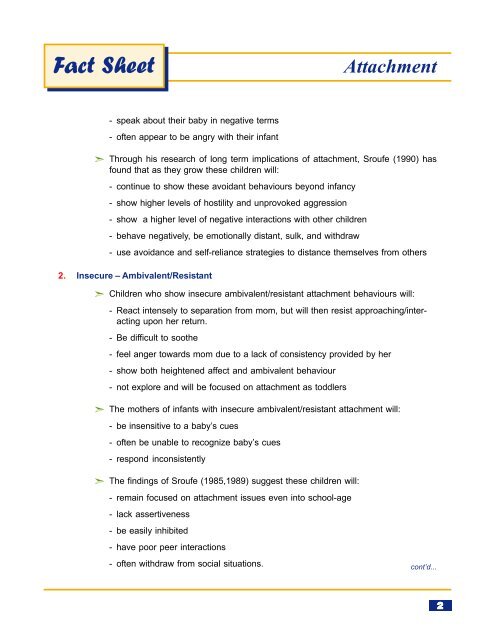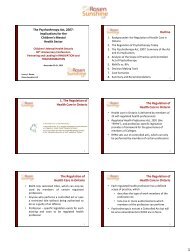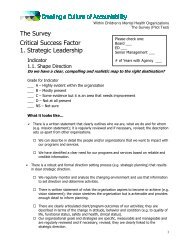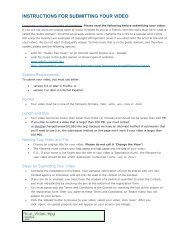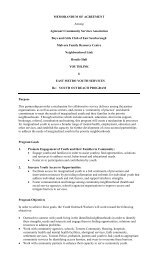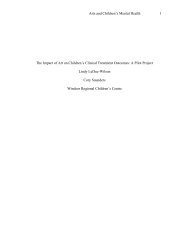Early Childhood Mental Health Treatment: Training Reference Guide
Early Childhood Mental Health Treatment: Training Reference Guide
Early Childhood Mental Health Treatment: Training Reference Guide
You also want an ePaper? Increase the reach of your titles
YUMPU automatically turns print PDFs into web optimized ePapers that Google loves.
Fact Sheet<br />
Attachment<br />
- speak about their baby in negative terms<br />
- often appear to be angry with their infant<br />
Through his research of long term implications of attachment, Sroufe (1990) has<br />
found that as they grow these children will:<br />
- continue to show these avoidant behaviours beyond infancy<br />
- show higher levels of hostility and unprovoked aggression<br />
- show a higher level of negative interactions with other children<br />
- behave negatively, be emotionally distant, sulk, and withdraw<br />
- use avoidance and self-reliance strategies to distance themselves from others<br />
2. Insecure – Ambivalent/Resistant<br />
Children who show insecure ambivalent/resistant attachment behaviours will:<br />
- React intensely to separation from mom, but will then resist approaching/interacting<br />
upon her return.<br />
- Be difficult to soothe<br />
- feel anger towards mom due to a lack of consistency provided by her<br />
- show both heightened affect and ambivalent behaviour<br />
- not explore and will be focused on attachment as toddlers<br />
The mothers of infants with insecure ambivalent/resistant attachment will:<br />
- be insensitive to a baby’s cues<br />
- often be unable to recognize baby’s cues<br />
- respond inconsistently<br />
The findings of Sroufe (1985,1989) suggest these children will:<br />
- remain focused on attachment issues even into school-age<br />
- lack assertiveness<br />
- be easily inhibited<br />
- have poor peer interactions<br />
- often withdraw from social situations. cont’d...<br />
2


